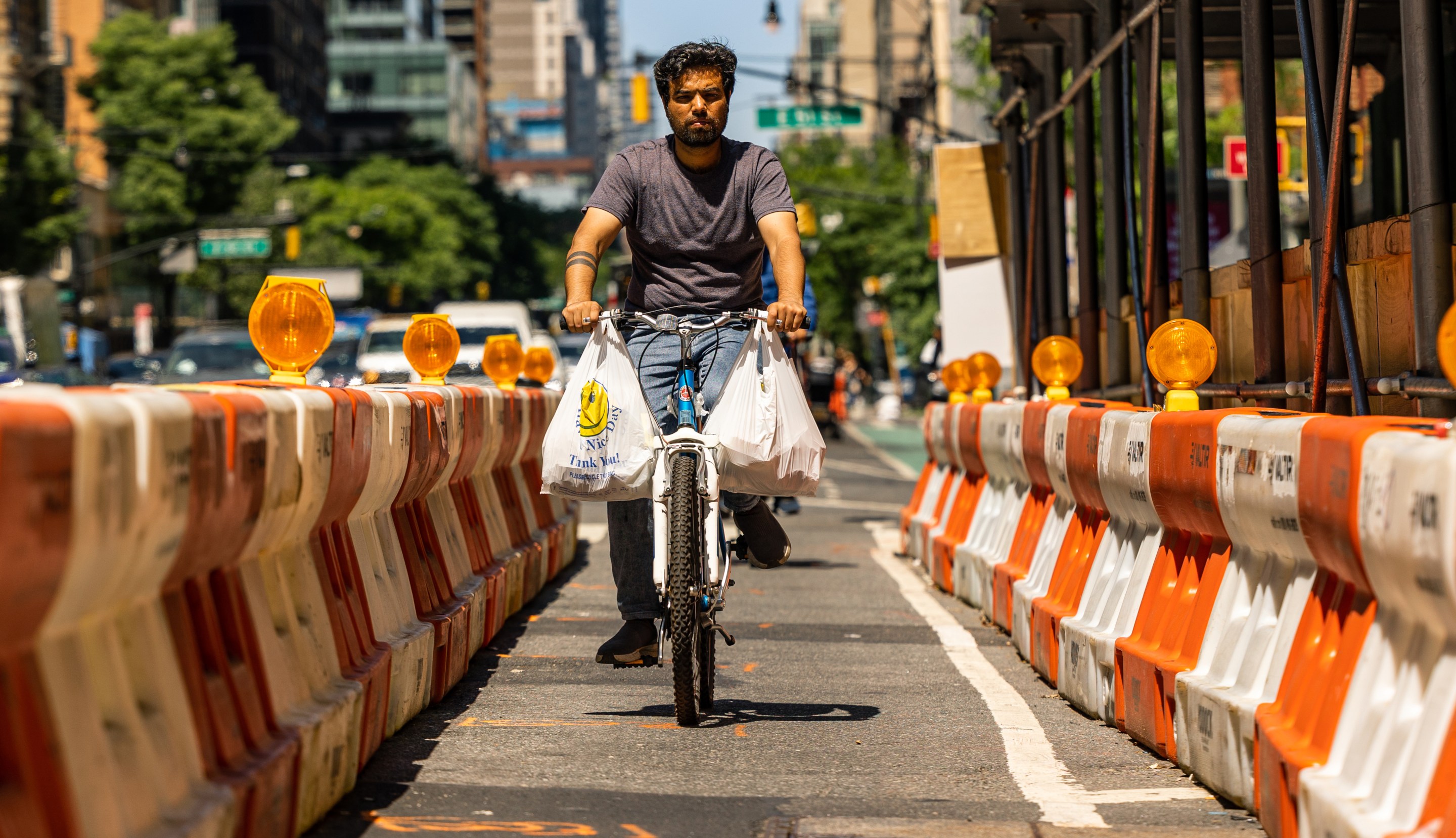For a significant portion of New Yorkers, the streets are, quite simply, our workplace. For us, the safety of our streets is something we care deeply about — and we have grave concerns that our elected leaders are about to put us in even more harm’s way in the name of street safety,
Several recently introduced bills would force workers to register our individual e-bikes and obtain insurance and inspections for them. As members of a collective representing New York City's nearly 65,000 app delivery workers, my fellow deliveristas and I were deeply disappointed to see local and state leaders introduce legislation to force delivery workers to shoulder the burden of e-bike regulation — rather than trying to regulate the app companies that profit from the proliferation of unregulated e-micromobility devices.

Make no mistake, our e-bikes are the engines that fuel the growth machine of app delivery companies. But because we are classified as independent contractors, we have to buy those devices ourselves. If these proposals pass, we’ll also have to register them and be responsible for maintaining them — adding to the personal costs that imperil many of us who struggle to make a living in this precarious industry.
These bills will also unfairly target delivery workers, as most ticketing laws of this kind disproportionately target non-white residents of the city and we are a largely non-white, immigrant workforce.
Unfortunately, too many politicians fail to take a comprehensive view of public safety when considering such bills. They do not consult and empower the city’s predominantly Black, brown and immigrant workforce to play an active role in the policy making most central to us and to consider its potential consequences.
Regulating e-bikes is not going to solve the safety problem. The fundamental problem is that the city was not prepared for this explosive but essential revolution in transportation — a revolution that app companies profit from, but one whose regulation they refuse to allow.
These companies simply don’t want to be regulated by anything that could affect their growth and bottom line. They want to come and extract as much wealth from consumers and workers as possible without contributing. That’s why we must buy our own bikes and will have to face these new regulations ourselves — to keep the corporations' costs low and profits high. That’s their business model. It’s irresponsible and dangerous for everyone. We should know: 31 of us have died under this model. Regulating individual e-bikes is not going to change their business model and make anyone safer.
Instead, we need a broader understanding of safety on the streets. During the pandemic, deliveristas led the transition to micromobility. We can lead the next evolution in micromobility by ensuring we build the infrastructure necessary to safely regulate this industry while also increasing access to transportation alternatives for all New Yorkers. That’s why we are advocating for a comprehensive street safety and e-micromobility plan that includes protected (not painted) bike lanes, e-bike charging stations, street deliverista hubs, and safe e-micromobility devices, including e-bikes. With our plan, we can meet the needs of our communities while also providing for the economic integration and empowerment of immigrant workers in the delivery industry.
We also must ensure that the app companies do their part in building these alternatives. As the primary economic beneficiary of e-bikes on the streets, to the tune of billions of dollars, they ought to contribute to improving access to safe devices and their maintenance.
NEW BILL ALERT! I introduced A9092 & A9114 to require e-bikes to get registered at the State DMV with license plates. They will also be required to get insurance and inspections. It is time to regulate e-bikes to make our streets safe for everyone and take dangerous batteries out… pic.twitter.com/VzsvUKBmrc
— Assemblywoman Jenifer Rajkumar (@JeniferRajkumar) March 18, 2024
Like all workers, deliveristas want to work in a dignified and safe space. We care about these streets because the streets are our workplace. Ticketing and over-regulating individual e-bike riders will not stop the fact that app companies should be regulated to provide safe working equipment for essential workers in order to make our streets safer for the revolution in micromobility.
The companies profit from this lack of regulation: Your food arrives safely (thanks to us) and their dollar is secure. But ask yourself: what price are we all really paying? Let’s not waste this opportunity — instead of making individual residents and workers pay for a reckless business model, let’s work together to innovate the next evolution in e-micromobility for New York City.






